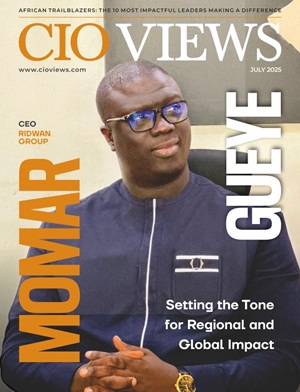
Soft Skills Have More To Do With Who We Are Than What We Do
Honest and direct feedback helps executives and leaders take their skills – and performance – to the next level. Every organization has high potential, valued employees who have been successful as individual contributors, but who fail when advanced to leadership roles. Coaching helps them build on experience and success, but significant insights and basic training in soft skills add a business arsenal that allows them to lead at the highest level.
Understanding Soft-Skills
While hard skills relevant to the job are critical, employers are seeking professionals who can work and succeed in a team environment. Soft skills impact how we build relationships, work together and, ultimately, do our jobs. Soft skills are personal attributes that enable someone to interact effectively and harmoniously with other people. Soft skills are a combination of interpersonal people skills, social skills, communication skills, character traits, attitudes, career attributes, and emotional intelligence quotient (EQ) among others that enable people to effectively navigate their environment, work well with others, perform well, and achieve their goals with complementing hard skills.
A person’s soft skill is an important part of their contribution to the success of an organization. Successful leadership relies on a variety of soft skills. Organizations which deal with customers face-to-face are generally more successful if they promote activities for staff to develop these skills through wellness-enhancing programs. Training or rewarding for personal habits or traits such as dependability and diligence can yield a significant return on investment for an organization.
Effective leaders apply these skills to interact with and inspire their teams openly and honestly. As you develop in your career, it’s important to develop your soft skills so you can increase your opportunities for advancement into leadership roles.
Essential soft skills for effective leadership
- Communication skills: How you communicate with your employees drive the type of working relationship you have with them. To cultivate a positive and cooperative bond, it’s important to learn how to be a good communicator. Successful leaders are often active listeners who are open to feedback and acceptance of their team’s perspectives. To demonstrate communication skills effectively in a leadership role means having the ability to apply discussion techniques, interpret body language, and correspond with others in writing.
- Teamwork skills: Every successful leader knows how to work as a team with their colleagues. Collaborating and sharing ideas, contributing to a common cause, and helping teammates achieve success are common teamwork skills that effective leadership depends on.
- Analytical skills & Decision-making: Leading a team requires the ability to analyze and evaluate processes and operations. Leaders rely on their analytical skills to make decisions, weigh options and predict the outcomes of projects or tasks they are responsible for. The ability to decisively act during times of conflict is another trait of effective leadership.
- Empathy, Compassion & Confidence: The ability to empathize and understand others is a trait skilled leaders rely on to lead teams and direct processes. Being able to approach coworkers with kindness and acceptance can inspire and foster healthy work relationships. Working with a team requires patience, acceptance, and sometimes tolerance. Leaders who strive to prioritize their team’s needs often demonstrate high levels of compassion and caring. Good leaders are assertive and it shows. Confidence in leadership means being open to improvement and understanding the value you provide.
- Integrity & Honesty: Leadership requires consistency in actions, values, principles, expectations, and methods. Leaders who consistently act with integrity commit to behaving ethically and morally. Integrity and honesty are staples of great leadership. Leaders who are open and transparent in their communications with staff commonly have healthier work relationships because they inspire greater trust.
- Creativity: Being creative enables you to solve complex problems or find interesting ways to approach tasks. Creative leaders use innovative strategies and approaches for completing projects, organizing teams, and developing solutions. Business growth often depends on leaders’ creativity and imaginative designs to implement strategies that help their organizations achieve goals.
- Emotional intelligence: Self-awareness, mindfulness, and intrapersonal skills are key traits of emotional intelligence. Leadership depends on the ability to evaluate your own emotions before confronting situations, identify environmental stimulants that trigger negative emotions, and resolve internal conflicts before interacting with others. It also helps leaders motivate their teams, support them in both challenging and uplifting situations and keep themselves balanced mentally and emotionally so that they can continue to show up as the best versions of themselves.
- Adaptability & Planning: With all the uncertainty over the past year, organizations that didn’t have teams of adaptable and flexible leaders either fell apart or suffered losses. Effective leaders adapt to transitions by finding ways to cope with new situations, support teammates in times of change, and initiate team collaboration to ensure their teams have input during any changes in processes or operations. Those who are adaptable respond quickly to the first detection of change. Flexibility ties in with adaptability as the ability to see alternate paths forward in the face of a challenge. Together, this creates a dynamic soft skill that is absolutely essential for today’s leaders.
Most of these skills aren’t learned in a classroom but through myriads of everyday experiences. It’s critical to understand that no matter how “smart” or technically proficient you are, your soft skills are what will enable you to truly utilize your knowledge and put your hard skills to use. All professionals need a certain level of soft skills to succeed in their professions. Executives today are much more concerned with the lack of soft skills and more opposed to the lack of technical skills in the workforce.




















